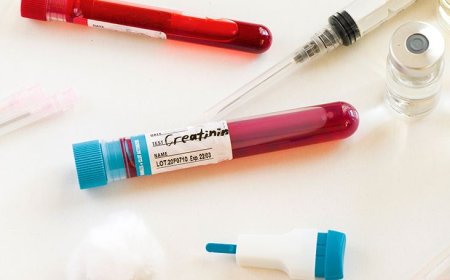When Should Your Child First Visit the Dentist? UK Recommendations
The first paediatric dental visit is not just a general checkup. It is a crucial part of establishing good oral habits for the whole life. Here’s why you must prioritise early dental visits for your child:

One of the most common questions parents ask about their childs oral health is, When should they see the dentist for the first time? It might seem early to think about dental check-ups before your baby even has teeth, but guidance from dental and health professionals across the UK is clear: children should see a dentist as soon as their first teeth appearand no later than their first birthday.
Why Early Paediatric Dental Visits Are Important?
The first paediatric dental visit is not just a general checkup. It is a crucial part of establishing good oral habits for the whole life. Heres why you must prioritise early dental visits for your child:
Prevention of tooth decay
Shedding off the fears about visiting a dental environment
- Better knowledge of oral care habits
In the UK, tooth decay is known to affect more than 25% of the children population in a year, on average. According to the reports of Public Health England, this rate is even higher in certain deprived communities. With the help of early dental visits, such problems can be detected even before they start. This, in turn, also supports families to developing good oral habits as a part of their normal life.
UK Guidelines: What does the NHS Recommend?
According to the NHS, children must see a dentist after their first baby teeth come out. This is approximately six months after their birth. This fact is also supported by the British Society of Paediatric Dentistry (BSPD) and Public Health England officials.
Main recommendations involve:
- First visit by age 1: Even if only a few teeth have appeared, you must get your child adapted to the dental environment. its important to get your child used to the dental environment.
- Routine dental follow-ups: After the initial visit is completed, you must accompany your child for follow-up appointments (after every six months). Such checkups can also be scheduled at different intervals, depending on the respective needs of your child.
- Free treatment for kids: In the UK, the NHS provides free dental care for children. This solves the cost-related problems for regular dental checkups.
What To Expect at the First Appointment?
The first dental visit for your baby or toddler is more like an introductory session. It is designed so that children can shed off their unnecessary fears and feel relaxed. During the visit, the dentist typically:
- Assesses your childs inner mouth to check for potential symptoms of tooth decay and developmental issues.
- Provides advice on preventive care and proper techniques to clean your childs teeth and gums. This is also applicable for those children whose teeth have not come through fully.
- Discusses about the feeding habits, and teething signs. Also, they may want to know about the use of bottles and pacifiers.
- Talks about the importance of fluoride. It is an important mineral responsible for strengthening the enamel and preventing decays.
In some cases when the child has become old enough, the dentist may also apply a fluoride coat. This is particularly beneficial when there are potential risks of early decay.
Common Parental Concerns About First Dental Visits: What Do the Experts Have to Say?
1. But my child only has a few teeth!
Initial dental visits are not about performing complex procedures over your childs teeth. It is more about familiarisation to the dental clinics environment and prevention of dental issue down the line. In this context, parents must also know that even a single erupted tooth can also welcome decay if not intervened on time.
2. Will my child sit still at the dentist?
Most dentists who address children problems are professional paediatric dentists. They have all the necessary skills and techniques to manage naughty and nervous children. Paediatric dentists use kid-friendly tones and calming language to pacify your childs nervousness; hence there will hardly be any issue during the initial visit.
3. What if my child already has decay?
If decay is found, the dentist will actively discuss about the subsequent steps in managing the issue. Early dental decays are often manageable with fluoride treatments and proper dietary advice. So, there is no need to fear about invasive treatments.
How to Reduce the Risk of Tooth Decay?
Besides assisting your child in regular dental checkups, you must also initiate the following measures to reduce decay risks:
1. Make him practise brushing on own
Begin brushing your babys teeth as soon as they appear. You must use a small toothbrush having soft bristles so they do not hurt the delicate oral tissues. Also, after he turns a bit big, put a pea-sized amount of fluoride toothpaste while brushing.
(Note: Teach your child about the proper brushing techniques once he is old enough to follow instructions.)
2. Limit sugar intake
Sugar is the main culprit for dental decay. Hence, you must limit your childs sugar intake by substituting them with healthy snacking options (once he is around three or five years old). Until then, water and milk are the best drinks.
4. Use fluoride
Ensure your child is using an age-appropriate toothpaste with the recommended fluoride concentration. Fluoride helps protect and remineralise the enamel.
5. Avoid prolonged bottle feeding
You must try to move your child away from sucking a feeding bottle for prolonged periods of time. Instead, teach them how to drink from a sipper cup (this must be taught within 12 months of age). Also, do not allow bottle-feeding during bedtime as the sugary drinks can pool around the teeth while he is sleeping.
Conclusion
Taking your child to the dentist by the time he attains 1 year is the most ideal thing to do. Many parents may feel this too premature however, it is an investment for a lifetime. As a parent, you must normalise early dental visits. This helps reduce the likelihood of unnecessary anxiety regarding dental visits at a later stage, plus spot issues before things get out of control. No doubt, such an approach empowers both parents and children in maintaining optimal oral health. And while regular visits are crucial, knowing where to turn in urgent situationslike at EmergencyDentistInLondoncan also set a great example of preparedness and care.



































